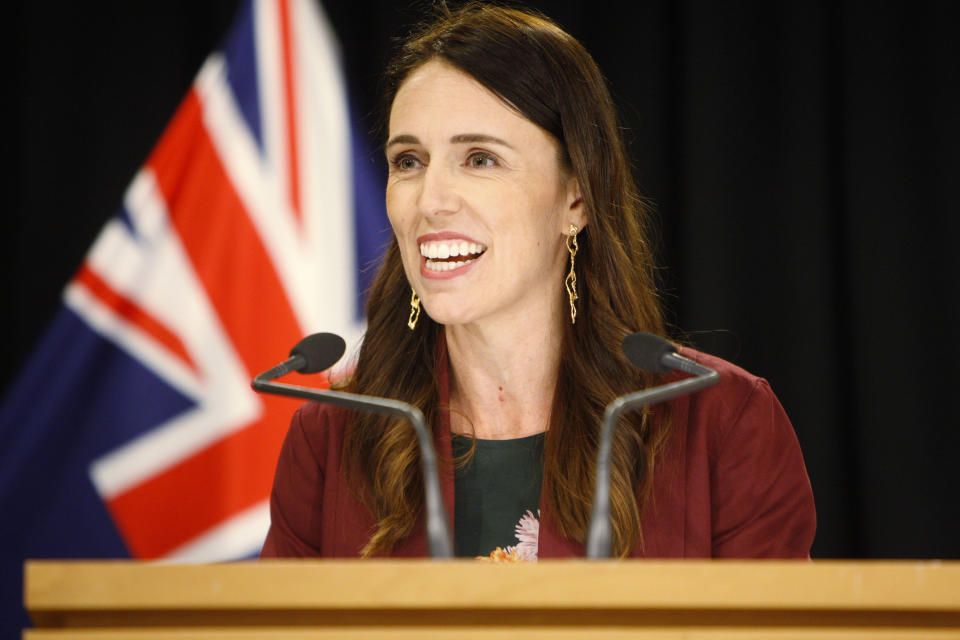Jacinda Ardern's $2.4 million move to make 'necessity' free at schools
New Zealand’s Prime Minister Jacinda Ardern has announced the government will invest NZ$2.6 million (AU$2.4 million) to tackle period poverty.
Period poverty is when someone cannot access sanitary items for their period and Youth19 warns those impacted can miss out on activities like school and work.
It was announced on June 4 schools in Waikato would be the first to provide free period products to students, to aid children and young people living in poverty, Ms Ardern announced.
In term three this year the products will be provided by the Ministry of Education at 15 Waikato schools and the plan will then be expanded to all state and state-integrated schools by 2021 on an opt-in basis.

“We know that nearly 95,000 9-to-18 year olds may stay at home during their periods due to not being able to afford period products,” Ms Ardern said in a statement.
“By making them freely available, we support these young people to continue learning at school.
“Our plan to halve child poverty in 10 years is making a difference but there is more to do and with families hit hard by the COVID-19 global pandemic, it’s important to increase that support in the areas it can make an immediate difference.”
The initiative “sits alongside” the government’s $5.5 billion Families Package.
According to Youth19, Māori and Pacific students are disproportionately impacted by period poverty – with 15 per cent of Māori students and 15 per cent of Pacific students not going to school because they did not have access to sanitary items.
“Menstruation is a fact of life for half the population and access to these products is a necessity, not a luxury,” Minister for Women Julie Anne Genter said.

In just 2019, the Australian Government removed the Goods and Services Tax (GST) on feminine hygiene products.
The GST on feminine hygiene products was introduced in 2000 and debate raged, with many calling for the ‘tampon tax’ to be ditched.
In 2000 then Minister for Health, Dr Michael Wooldridge, said “as a bloke, I'd like shaving cream exempt, but I'm not expecting it to be.”
He also argued condoms were exempt from the GST because they prevented illnesses, which is true.
“I wasn't aware that menstruation was an illness,” Dr Woodbridge said.
Last year, Yahoo Finance reported about 500 million women and girls experience period poverty every month and about one million of them are in Australia.
Scotland is set to become the first country to make all period products like tampons and sanitary pads free.
Do you have a story tip? Email: newsroomau@yahoonews.com.
You can also follow us on Facebook, Instagram and Twitter and download the Yahoo News app from the App Store or Google Play.




